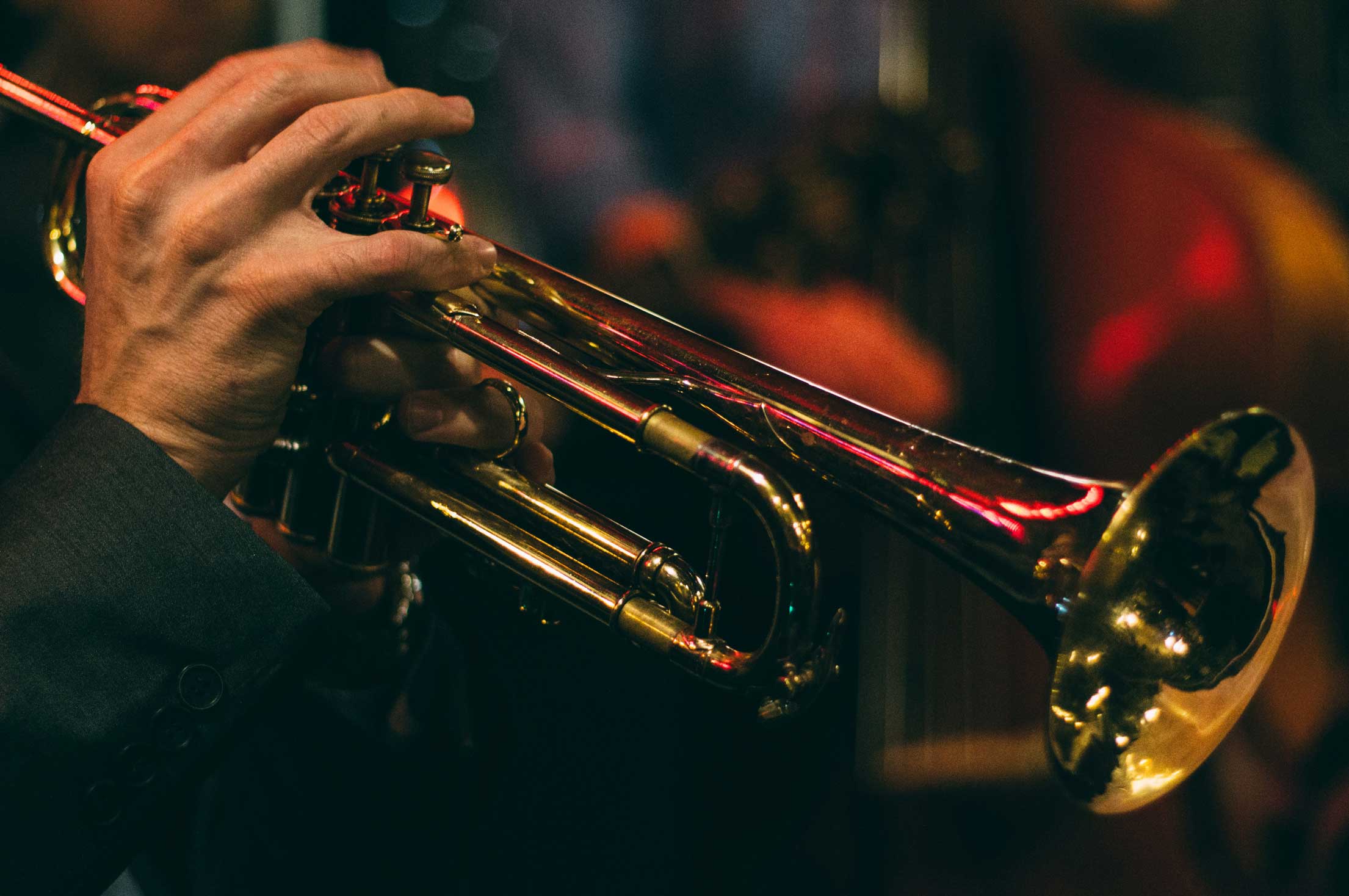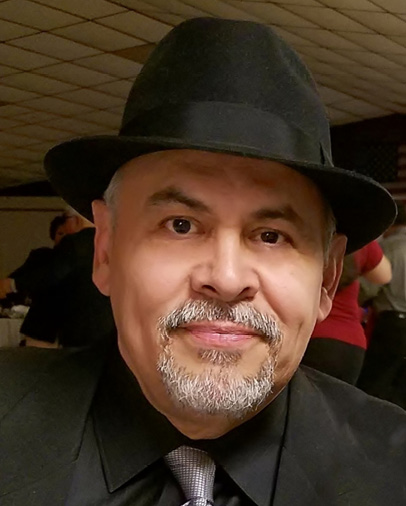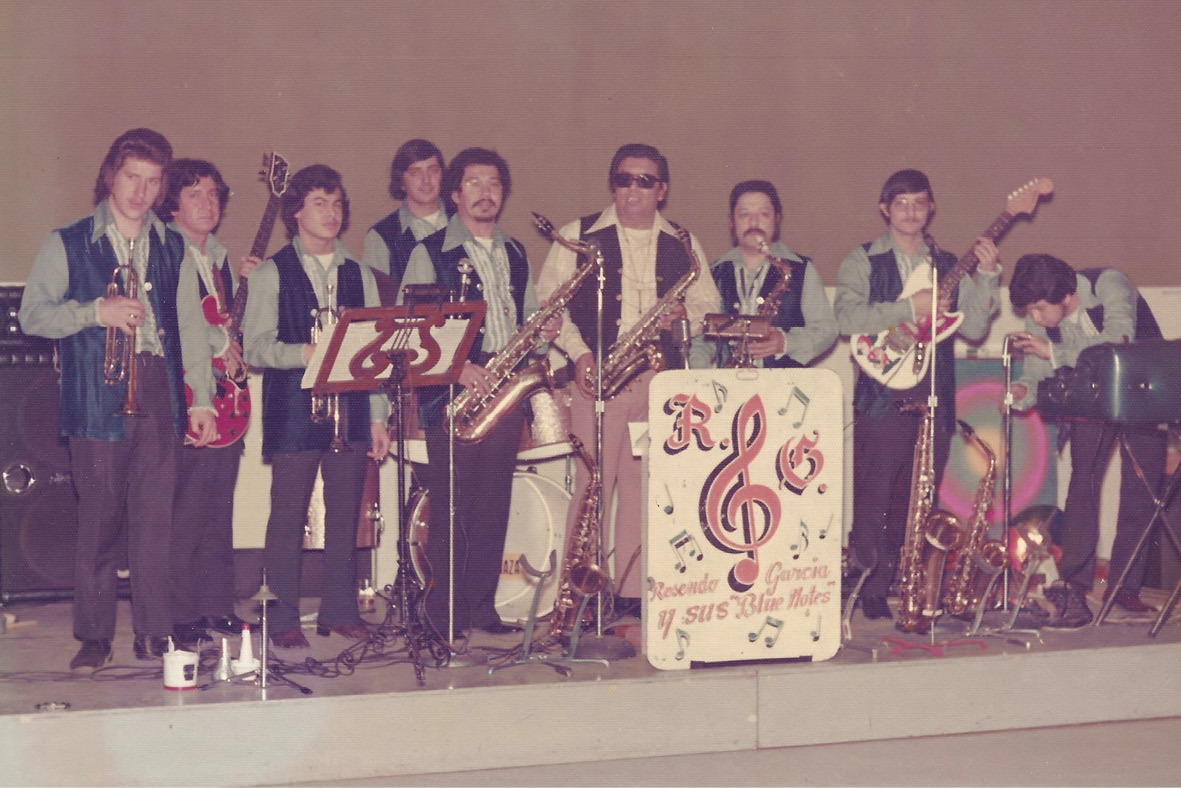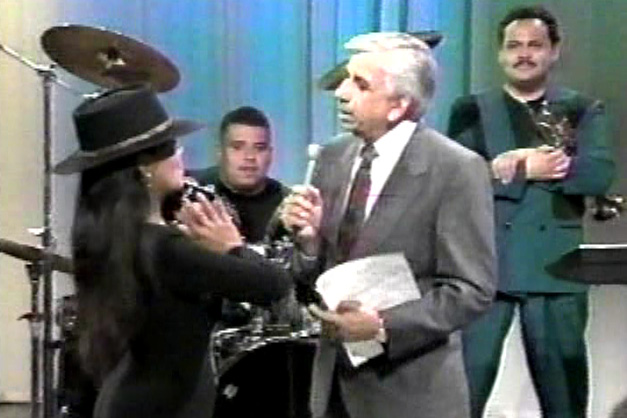Local Musician Rudy Peña Inducted into the Tejano R.O.O.T.S. Hall of Fame


Rudy Peña
In November of 2024, musician/promoter/producer Rudy Peña was inducted into the Tejano R.O.O.T.S. (Recognizing Our Own Tejano Stars) Hall of Fame in Alice, Texas, in the trumpet category. Peña is only the second inductee in the Hall of Fame’s 25-year history to have resided in Michigan for the majority of his working life, following vocalist and bajo sexto player Martin H. Solis, Jr., inducted in 2017. Peña’s induction, like Solis’ before him, is testimony to the lasting influence of Texas-Mexican musical styles in Michigan and the Midwest, brought here by Tejana/o farm and factory workers who migrated to the region in search of better opportunities for themselves and their families. This legacy is further cemented by the induction of a number of others with roots in the Midwest, including Solis’ cousin Willy Huron (Class of 2019). Accompanying Peña in the Class of 2024 were Cruz Guerrero of the Chicago-founded La Sombra and his sister, Christina Guerrero; bajo sexto player Rodolfo “Fito” Valle of Defiance, Ohio; and guitarist Miguel Hernandez, who got his start in Tejano music in Peña’s group, Patricia y Cariño Musical.
Early Life
Peña was born in Mercedes, Texas, in the Rio Grande Valley, in 1956. Though he would spend most of his performing career playing the style of music now known as Tejano—but variously referred to in its earlier days as Tex-Mex, música chicana, or la onda chicana—Peña’s earliest musical memories are mostly of the more traditional conjunto style, notable for its combination of accordion and bajo sexto. Because of his grandmother’s love for conjunto, he recalls hearing records by artists like Conjunto Bernal and local legend Ruben Vela. He was also exposed to conjunto through his grandfather, a drummer who had previously toured the West and Midwest with larger orchestras, but later in life played conjunto with friends in the local cantina and cinema. At around age 6, left in his grandfather’s care while his parents and grandmother were at work, Peña would accompany him to gigs, sitting at his feet while the conjunto played between double features at the cinema or under the supervision of the barmaid at the cantina. He remarks, “I don’t remember even hearing Tex-Mex, as they called it, until I came up [to Michigan], when everybody was the horns, the horns. . . Back then, it was all conjunto.”
A few years later, in 1967, Peña’s father traveled to Pontiac, Michigan, because word had spread in Mercedes that the GM plants were hiring. Like many in the community he landed a job in an auto plant—Pontiac Motors in his case—and six months later brought his wife and children up to Michigan.
Peña recalls feeling like the whole town had moved up with him: “When the get-togethers would happen, or dances, all the bailes, I’d see the same people, literally. Of course there [were] other people that were here already I didn’t know, but the majority was just all Mercedes, as far as I could tell. And it just still felt like home.”
Since going to gigs with his grandfather back in Mercedes, Peña dreamt of becoming a drummer in a band. While the school band offered an opportunity to learn music, drums were not an option at the fifth-grade level, so he first took up the trumpet. He also tried his hand at several other instruments and practiced drums at home, but ultimately, when he had the opportunity to audition for a working band, his desire just to be in the group outweighed his wish to be a drummer. His uncle Henry Peña was already a drummer for a local group called Rosendo Garcia y Los Blue Notes. So when he told Rudy they needed a trumpeter, Rudy had his father buy him a cornet and fully dedicated himself to the instrument. In 1972, at 15 years old, he auditioned for the Blue Notes and set off on the musical career that would eventually land him in the Tejano R.O.O.T.S Hall of Fame.

Rudy Peña (third from left) joined Los Blue Notes at age 15. Standing to his left in this 1972 photo are his uncle Henry Peña (drums), his uncle Eli Sauceda (saxophone), and Rosendo Garcia (in white shirt).
Taking the Stage
Over the next eight years, Peña played in a series of different groups, most of which included family members who had also settled in Michigan. He played in the Blue Notes with his uncle Henry from 1972 to 1975, recording two 45-rpm records for local Tex-Mex labels, one on Pretty Good Fine Records, founded by Detroit radio deejay Julian Suarez, and one on Del Rey Records, operated by José Angel and Juanita Gutierrez. The Gutierrezes, who owned a record store in Detroit’s Delray neighborhood (later relocated to River Rouge, Michigan), also hosted their own radio program, as well as a television program on which the Blue Notes performed. Peña left the Blue Notes in 1975 and formed a new group called the LatinLites with his uncle Eli Sauceda and friend Jaime Garza, which lasted until 1976.
After the LatinLites, Peña joined his uncle Joe Vela (the younger brother of Ruben Vela) in Nueva Vida. When the group hired a new vocalist, they changed their name to Ambicion Band and recorded a 45 on their own label. Then when several members left to start their own band under the same name, Peña’s group renamed themselves to Original Ambicion Band and recorded another 45 on their own label. Notably, Original Ambicion Band won a battle of the bands in Saginaw and later tied for first place with another band at a second competition. The first prize was meant to include both a trophy and a recording contract with the Texas-based Hacienda Records, but because of the tie, the prize was split in two, with one group receiving the trophy and the other the recording contract. Representatives of each group decided in consultation with the organizers that Original Ambicion Band would take the trophy, and the other group would take the recording contract. Asked if he would have preferred the recording contract, Peña says, “No, I’d rather have the trophy. I’d rather say . . . we’re first place with a trophy. . . . See, recording contract sounds very glamorous. But when you pull that curtain back, it’s not. It’s a lot of headaches.” After Original Ambicion Band broke up in early 1978, Peña briefly joined friends in a group called Los Mickey’s. He then joined back up with his uncle Joe Vela in the group Sangre Nueva de Joe Ybarra in 1979 before briefly resurrecting the LatinLites with his uncle Eli Sauceda in 1980.

Rudy Peña (third from left) is pictured with the band LatinFlame along with his future wife, vocalist Patricia Salazar, in this 1981 photo.
Taking the Lead
From 1980, after the end of the LatinLites, until 2005, when he stepped away from performing, Peña assumed the role of band leader. After he left Sangre Nueva but before Sauceda suggested reviving the LatinLites, Peña had already decided to start a new band with his future father- and brothers-in-law. Sauceda joined up with the new group who agreed to perform as the LatinLites, but this arrangement was short-lived. When Sauceda left toward the end of 1980, the rest of the group voted Peña as band leader and renamed themselves LatinFlame de Rudy Peña. In 1982, Peña married Patricia Salazar, who had also joined the group as a vocalist. In 1984, after Peña’s father-in-law retired from the band and George Guerrero took over as lead vocalist, the group renamed themselves Cariño Musical de Rudy Peña. The group achieved a high level of recognition locally, winning Best Band at the Midwest Hispanic Music Awards, held for several years in the late 1980s in Cascade Township, Michigan, a suburb of Grand Rapids. They also recorded an album for the Texas-based label Mas International Records, though only two songs from the planned album were ever released, both original songs written by Peña.
After Guerrero left the group, Peña’s wife took over as lead vocalist and the name of the group changed for the final time to Patricia y Cariño Musical. This iteration of the group won numerous honors at Midwest-based Tejano music awards ceremonies. From 1990 to 1995, Patricia consistently won Female Vocalist of the Year at the Tri-State Latin Music Awards, held at the Club International in Detroit—a venue which hosted many of the big Tejano and Norteño touring bands—while the group won Band of the Year in 1991. In addition to their popularity in the Midwest, where the group regularly toured, they also toured the East Coast and Texas and even performed in Windsor, Canada, and Monterrey and Tampico, Mexico. On one tour of Texas, the group appeared on the Rogelio Botello Show, filmed in Harlingen, Texas, the Rio Grande Valley’s answer to the perhaps more widely known Johnny Canales Show, filmed in Corpus Christi, Texas.
This final iteration of the group recorded an album for Valencia Records, a label founded by Tejano guitarist Ricky Smith after he relocated to Michigan from Texas in the 1980s. In fact, Smith became a frequent collaborator for Peña. Cariño Musical and La Movida, Smith’s group, often toured together in the Midwest and beyond—La Movida appeared with Cariño Musical on the Rogelio Botello Show on their joint tour of Texas, with Peña filling in on bass for La Movida during the taping. Peña and Smith also cofounded an artists’ collective called Músicos Unidos to seek radio play and pay equity for artists in the collective. Out of a sense of frustration that they could not get their music played on other local Tejano radio programs, Peña and Smith started their own program, which aired on WNZK-AM Monday through Friday nights. Smith hosted Mondays and Wednesdays and Peña Tuesdays and Thursdays; they invited guest deejays for Friday nights so they could travel with their bands Friday through Sunday. Further, through Músicos Unidos, they collaborated with a group created in local correctional facilities called HASTA (Hispanic Americans Striving Towards Advancement) to bring live Tejano music to those in incarceration.

Patricia y Cariño Musical
Taking on a New Role
Patricia y Cariño Musical disbanded in 2005 when chronic illness required Patricia to retire from performing and Peña became her 24-hour caregiver until her untimely passing in April of 2011. Peña’s career as a performing musician also came to an end at this time, but in the fall of 2011, he returned to the music industry in a new role. In October of 2011, he founded Peña Productions (later renamed Rudy Peña Productions) to promote Midwest Tejano artists and dances in Michigan. He also launched his own record label, Rudy Records, to record, produce, and promote the music of the artists he represents. He currently represents Karizma Band (Holland, Michigan), Celestina y Los Sanchez (Battle Creek, Michigan), Los Hermanos Alvarez (Croswell, Michigan), Cresencio (Detroit), Beto and Dos Guyz (Detroit), and Jessica Gonzalez (Fostoria, Ohio). He also runs two YouTube channels: Rudy Peña Productions, where he showcases the artists he represents, but which is also a rich archive of the many groups he performed with over the years; and Timeless Tejano Classic Conjunto, an archival project built from his own record collection. Additionally, he cofounded Tejano Entertainment Group with Paul Alvarez (son of Juan Alvarez, lead singer and bass player in Los Hermanos Alvarez), also to promote dances throughout the Midwest.

Patricia y Cariño Musical on the Johnny Canales Show
Conclusion
As the preceding paragraphs demonstrate, Peña’s induction into the Tejano R.O.O.T.S Hall of Fame is well deserved, given his multifaceted, five-decade career in the Tejano industry. His induction in the trumpet category is fitting, as it was his primary instrument throughout his performing career, though he did also at times incorporate flugelhorn and trombone. At the same time, it does not fully account for the totality of Peña’s career, which has also included such as roles as radio deejay, songwriter, record producer, and concert promoter. Nor does it acknowledge his more informal role as a mentor to younger musicians. Dating back to his performing career, Peña acted as mentor to members of his own band, some of whom he encouraged to pursue a career in Texas when the opportunity arose, even though it created vacancies in his band. Most recently, he serves not only as producer and promoter for the artists on his roster, but also as mentor to the younger artists. His induction in the trumpet category also does not account for his commitment to keeping Tejano music alive in Michigan and the Midwest, where economic shifts and changing patterns of migration have diminished audiences for the music. Through all of these efforts, Peña has carved out a legacy for himself that will be felt for years to come.
